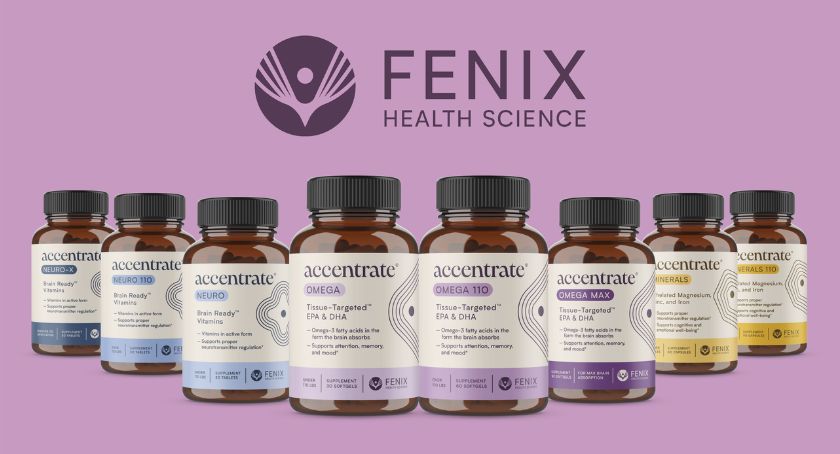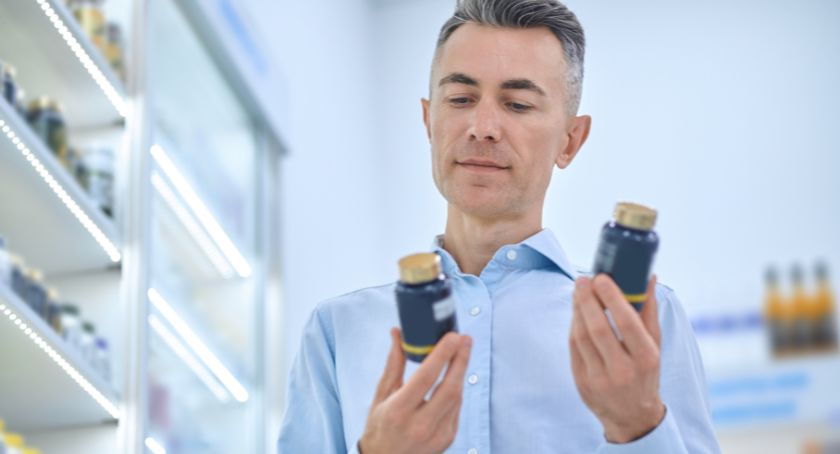Features
Skin Health Supplements Shine as Consumers Seek a More Natural Glow
Nutraceutical and skincare brands are converging and collaborating more than ever.

By: Mike Montemarano

The lineup of ingredients and products in the skin health supplements market is becoming more diverse.
Today’s market includes antioxidants, inflammatory-modulating nutrients, and bioactives like essential vitamins, biotin, carotenoids, and omega-3s; botanical extracts; probiotics with downstream effects on the skin; and collagen, hyaluronic acid, ceramides, and more.
Advanced technologies are helping to optimize ingredient bioavailability to confer tangible benefits. Overlap between the research and development pipelines of topical products and nutraceuticals is also deepening.
As a result, consumer awareness for beauty from within continues to increase.
“In addition to making better lifestyle habits to support their health and beauty goals, some consumers are turning to VMS [vitamin, mineral, and other supplement] products, with 28% agreeing they’ve consumed a beauty ingestible product to improve their appearance in the past year. What’s more, 64% of adults agree that taking a beauty VMS product is essential in maintaining one’s appearance,” said Jennifer White Boehm, director of beauty and personal care at Mintel.
How Big is the Skin Health Market?
The global beauty supplements market is expected to reach $4.6 billion by the year 2028, according to a forecast this year from market research firm Brandessence. Factors that will influence growth include a surging elderly population, increased disposable income levels, and heightened demand for herbal supplements in the Middle East/Asia region, the firm said.According to SPINS, over the 52 weeks ending Jun. 18, the top-selling ingredients within condition-specific skin health supplements globally were:
- Collagen ($67.1 million, -2.3%),
- Biotin ($49.7 million, -17.4%).
- Alpha lipoic acid ($12.1 million, -4.6%),
- Shark cartilage ($8.3 million, +7.7%)
- Hyaluronic acid ($7.5 million, -8.8%),
- Acai ($2.4 million, -48%),
- Vitamin A ($2.3 million, -15.4%),
- Horsetail (silica) ($1.8 million, -18%),
- Vitamin C ($1.6 million, +76.6%),
- Zinc ($1.4 million, -18.3%),
- Vitamin B complex ($1.3 million, -34.6%),
- Keratin ($825,000, +31.7%),
- Lysine ($716,000, +146.1%),
- Glycine ($575,000, +42.2%), and
- Astaxanthin ($439,000, -0.4%).
- Tablets ($57 million, -7.3%),
- Gummies ($51 million, -15.5%),
- Capsules ($22 million, -6.1%),
- Powders ($6 million, 10.5%),
- Softgels ($5.5 million, -14.7%),
- Veggie capsules ($4.5 million, +3.3%),
- Liquids ($3 million, -20.3%), and
- Soft chews ($1.5 million, +17.5%).
“Unlike other benefits that have risen and fallen since the onset of COVID-19, beauty supplements continue to rise, sustaining the third-fastest growth in 2022 across dietary supplements,” Oster said.
He noted that China and Japan are well ahead of the curve, and market trends will continue to emanate from these regions. The two countries represent 9% and 22% of the nutricosmetics/beauty supplements market, respectively. By comparison, the U.S. represents only about 2% of skin health supplement sales.
Broader trends within the dietary supplements industry could have implications for what’s on the horizon when it comes to product development in the skin health market. Already, the fascination with mushrooms is leading to interest in what the fungus kingdom can do for the skin.
“Indeed, mushroom-infused BPC [beauty and personal care] products are not considered new to the market, however, consumer interest in functional fungi has skyrocketed in recent years,” said Boehm, noting that 45% of adults expressed interest to Mintel in ingestible beauty products infused with mushrooms.
“Search volume for the mushroom varieties tremella and snow mushroom has jumped 187% and 57%, respectively,” she added. “The gradual increase of mushroom extracts used in BPC product launches over 2017 to 2021 indicates that mushrooms offer significant opportunities for boosting beauty formulas with anti-stress and wellness benefits.”
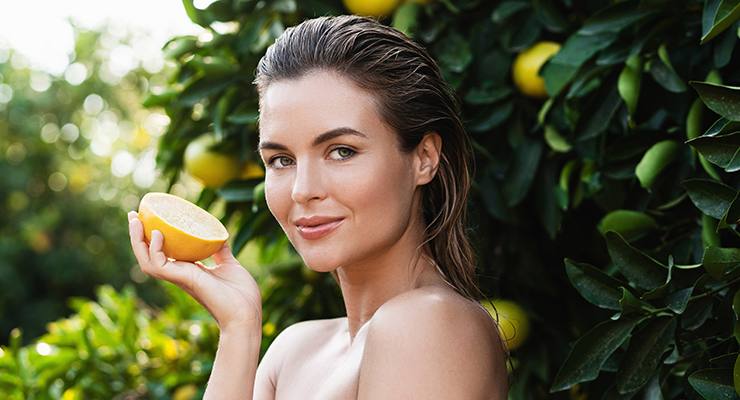
Consumer Attitudes
An estimated 76% of consumers already expect beauty brands to offer supplements that complement their skincare, hair care, and body care products, according to The Benchmarking Company.People want their routines to be simple, minimalistic, and above all, efficacious, noted Sébastien Bornet, vice president of global sales and marketing at Horphag Research, the supplier of Pycnogenol French maritime pine bark extract.
“Products with evidence-based ingredients that support the basic building blocks of healthy skin, including boosting microcirculation, elasticity, hydration, and antioxidant properties, are in a good position in a market where more educated consumers are driving growth,” he said.
Oster noted that younger consumers take the impacts of aging and efficacy of ingredients more seriously than other generations, which is plain to see in how influencers communicate about nutricosmetics today. Given the faddish nature of beauty products overall, don’t over-promise and under-deliver, he warned.
As consumers venture past well-established ingredients like collagen and biotin and into more novel beauty products, they are doing more research, and are on the hunt for brands that provide clear, easy-to-find information, concurred Boehm.
When it comes to the strategies emerging brands are taking to build relationships with consumers, it’s important to explain how a given product fits into a broader skin care routine, noted Oster.
“One example is The Nue Co, which has done a great job of educating consumers on its website, deep diving into key concerns it can help solve, similar to how skincare products are displayed online,” Oster said. “The brand offers a Skin Filter supplement as an ingestible retinol, which it suggests pairing with its topical skin filter serum, a retinol alternative, to tackle skin concerns from inside out and outside in.”
According to Mike Hughes, head of research and insight at FMCG Gurus, “The bigger focus should not be on creating outright differentiation, as this is something that can be a big challenge in a mature market. Instead, greater focus should be on providing multifunctional benefits that appeal from an efficacy, convenience, and value perspective.”
Several trends will draw consumers to nutricosmetics, Hughes added, such as the continuous aging of the population, widespread consideration of skin health as a component of overall health (not just aesthetics), and the cost-of-living crisis, in which salon and spa trips no longer fit into most budgets.
“In a post-pandemic society, consumers are focusing more on day-to-day health issues as opposed to a long-term focus on disease maintenance,” Hughes said. “That said, consumers are more likely to focus on general health and wellness over physical appearance. Moreover, they also recognize the link between good skin health and good overall health, meaning beauty regimes are not just driven by the desire to look good.”
Across the population, beauty supplements have a surprising lack of consumer trust despite their popularity, according to Erin Robbins, media director at MarketPlace.
“More than one third of supplement users (36%) report having purchased a hair, skin, or nail supplement in 2022, according to MarketPlace’s 2022 supplement consumer survey,” Robbins said. However, almost three-in-five U.S. consumers told Mintel that they aren’t convinced beauty supplements are effective.
In fact, 59% of adults agreed they’re not totally convinced that beauty supplements are effective, especially given a perceived lack of regulation of the dietary supplement market, noted Boehm.
Further, 20% of adults claim they don’t trust ingredient or product claims in the absence of scientific proof. “More consumers will expect brands to provide detailed information regarding ingredient sourcing and the production process to ensure products are safe and effective,” she said.
According to Oster, “Brands are emphasizing connections between wellness and beauty and are seeing the desire for science-backed brands and products growing. Much like in skincare, where consumers started paying attention to ingredient formulation and dermatologist recommendations due to health-driven narratives, we see a similar focus in supplements.”
For that reason, brands that effectively educate consumers will win the day, as effects often take longer than topical ingredients.
Of all adjacent health concerns, Boehm said that consumers consider stress to be one of the biggest complaints that has downstream effects on their appearance.
“Eighty-eight percent of adults agree that emotional stress impacts their physical appearance,” she said, and elevated stress levels aren’t expected to go away any time soon. “Mintel expects to see more innovations and brand messaging addressing stress relief both as a treatment and as a preventive health tool, as well as innovations designed to treat mental and appearance concerns concurrently.”
When approaching an appearance concern such as acne or hair loss with a holistic mindset, consumers are seeking to identify and treat the underlying causes, such as stress and related hormonal imbalances to address the concern, noted Boehm.
Convergence and Crossover
Several ingredients once only applied topically are making their way into dietary supplements, and vice-versa. “Skinimalism”—a term for paring down a skincare routine to include only absolute essentials—has been a leading motif of the skincare market this year, experts noted. Consumers are shedding previous desires to experiment with new products, instead opting for simplicity.The “skinimalist” approach is being taken as a cue to fill in the purchasing power gap by several mainstream dietary supplement brands, which are entering the skin health game for the first time.
Supplement company Ritual, which carved out its identity as a transparent and trustworthy multivitamin/mineral brand, entered the beauty-from-within market in May this year with HyaCera. This supplement features Ceratiq, a branded vegan ceramides ingredient, and Hyabest, a bio-fermented hyaluronic acid specifically formulated for dietary supplements due to its low molecular weight.
There have also been several noteworthy partnerships made between skincare and dietary supplement companies, noted Bornet.
For example, Neutrogena partnered with Nourished earlier this year to debut the concept of Skin360. The product begins with an app that utilizes camera scans and artificial intelligence (AI) to create personalized, 3D-printed, seven-layer stack gummies containing a custom lineup of skin-supporting nutrients and bioactives. Gummies are created in part through the digital skin assessment as well as through consumers’ goals, such as anti-aging, clearing, hydration, glow, or resilience.
More recently, makeup and beauty brand Caliray launched its very first dietary supplement, Get Lit, which contains nicotinamide riboside, biotin, green tea phytosome, lutein, betaine, and vegan vitamin D3 to promote hair, skin, nails, and resilience to everyday stressors.
Unilever has also taken notice, having purchased supplement brands Olly and Nutrafol in recent years.
Ulta Beauty is giving beauty-from-within products a considerable amount of shelf space, with about 100 SKUs online from supplement brands such as Love Wellness, Sugarbear, SeroVital, Bondi Boost, HAIRtamin, and more. Sephora also partnered with Nutrafol this year to feature its supplements online and at select retail locations.
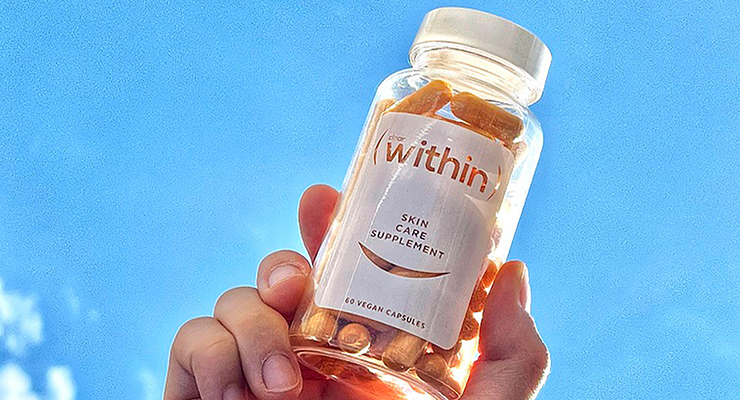
Natural Resilience
Whether it’s UV light, air pollution, elevated cortisol, or more, several chronic stressors cause inflammation and oxidative stress, chipping away at the function and appearance of skin. One of the key factors that sets nutraceuticals apart from topical cosmetic products is the ability for supplements to make every layer of skin more resilient against oxidative and inflammatory processes.Recent study designs are honing in on skin health in the presence of pollutants.
“Recent research showed that Pycnogenol may be effective in safeguarding the skin from seasonal changes and environmental stress,” noted Bornet. The antioxidant-rich French maritime pine bark extract, which has been the subject of over 25 clinical studies in both oral and topical skin care formulations, was studied in a 2021 human clinical trial that demonstrated its ability to support skin hydration, elasticity, and barrier function in the presence of urban environmental pollution, seasonal temperature changes, and humidity variations. Additionally, the study found the ingredient increased skin lightening during seasonal changes when dark spots typically emerge.1
Researchers are also focused on antioxidants that are more concentrated in the skin. For instance, a study published in late July discovered that squalene, the most unsaturated class of lipids and most readily oxidized, may help to form an oxidation field that protects other lipids located on the skin’s surface from oxidative stress. Volunteers who spent days in a climate-controlled environment produced more hydroxyl radicals in response to increases in environmental ozone, so much so that even skin flakes and worn clothing produced the oxidation field in a phase-gas reaction. This discovery has unveiled a new mechanism of action by which this endogenous lipid, which is also available in dietary supplements, helps to prevent oxidative damage, the authors noted.2
Similarly, a recent study on the polyphenol-rich complex of four botanicals marketed by Monteloeder as Zeropollution, assessed women who spent several hours outdoors in a heavily-polluted urban area. This was done to establish efficacy in improving several domains of skin function and appearance over a 2-week period even in areas with poor air quality.3
The inflammatory processes beneath the skin, which cause oily breakouts and acne, is one emerging target area for product developers. Supplement brand Clear Within utilizes essential nutrients in combination with botanicals such as curcumin, astaxanthin, and milk thistle seed powder, for products which have health claims such as “reduce acne causing inflammation,” and “regulate hormonal breakouts.”
Ingredients with more essential nutrition roles are subject to early-stage investigations for beauty benefits, with ingredients like krill oil proving relevant in skin function and appearance, noted Collene Gennetta, sales director of Aker BioMarine and beauty liaison of Superba Krill Oil.
“The four main nutrients found in krill oil—phospholipids, omega-3 fatty acids EPA and DHA, choline, and astaxanthin—all work together to keep the integrity of skin barrier, hydration, and elasticity,” Gennetta said.
Phospholipids are essential to the integrity and structure of our cells, and they also affect what enters and leaves the cells, which impacts skin health. Phospholipids also help deliver nutrients to cells around the body including skin cells. EPA and DHA are important for skin function and help maintain both the hydration and elasticity of the skin. Omega-3s are also vital for modulating inflammation.
Meanwhile, choline is converted into betaine, which helps maintain the balance of water in skin cells, helping to retain moisture. Astaxanthin can keep beauty ingredients shelf stable, protect skin cell membranes against oxidative damage, and help skin cells remain healthy over time, Gennetta noted.
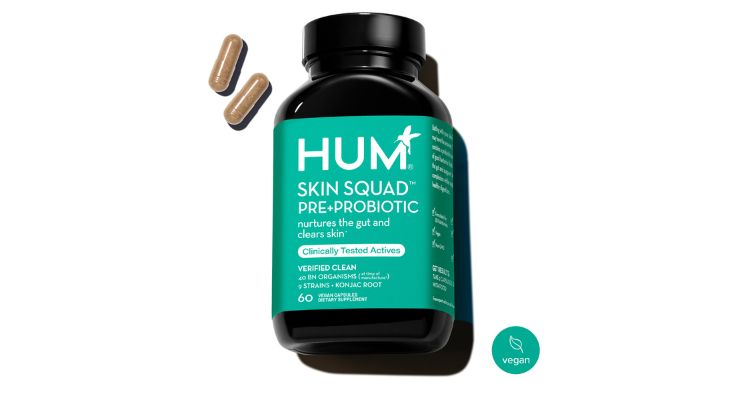
Gut-Skin Axis
Like the gut, the skin contains a microbiome of bacteria influencing health and appearance.Given that consumers are looking to become more resilient and attack skin issues at the source, research into the links between microbes and skin inflammation is garnering interest among beauty consumers, Hughes noted.
“We do believe there will be a significant growth in the proportion of people who turn to probiotics for skin health purposes over the next 5 years. Indeed, consumers know and trust probiotics and whilst they are primarily associated with aiding immune health and digestive health, a growing proportion of consumers are turning to such products for wider benefits, including to aid their skin health.”
While there’s a dearth of randomized, placebo-controlled, human clinical trials, preliminary evidence summed up in a 2015 review published in Critical Reviews in Food Science and Nutrition highlighted the potential probiotic bacteriotherapy might have in both topical and ingestible applications for eczema, atopic dermatitis, acne, allergic inflammation, skin hypersensitivity, UV-induced skin damage, and appearance.4
Already, several popular brands have developed probiotic products with claims related to acne and clearer skin. Hum Nutrition, for instance, launched a pre- and probiotic blend called Skin Squad containing Konjac root and nine strains including Bacillus, Lactobacillus, and Bifidobacterium, formulated to support a clear complexion, and decrease breakouts. Skin Squad was evaluated in a dermatologist-supervised, unpublished clinical study. After daily supplementation for 60 days, most participants had significant improvements in acne severity (88%); overall medical symptoms (92%); and improvement in digestive symptoms (81%). The study population’s acne severity score decreased from 2.42 to 1.88, according to Hum Nutrition.
Meanwhile, Love Wellness recently introduced its Clear Skin Probiotics supplement, which contains the strain Bifidobacterium longum BB536. This strain was evaluated in an animal study that showed improvements in trans-epidermal water loss and skin barrier function, along with corresponding gene expressions suggesting a role in atopic dermatitis.5
The gut-skin axis doesn’t appear to be limited to live bacteria. A pomegranate extract by Verdure Sciences called Pomella exhibited prebiotic activity that correlated with improvements in skin health in a study published at the end of 2022. The extract significantly augmented levels of Bacillus, Staphylococcus, and Eggerthelleceae, which translated to a reduction in wrinkle severity (6.2%), reduced forehead sebum excretion rate, and improved trans-epidermal water loss.6
Scalp Health
For many years, types I and III collagen have been well-established as building blocks of hair, skin, and nails, and restoring deficient levels of biotin has been linked to improve hair growth. But conclusive evidence that any product can restore lost hair and turn back the clock on hairline recession is lacking.However, in small studies, some specialty ingredients may be able to improve the appearance and density of hair by way of reducing oxidative stress and improving microcirculation in the scalp. As a result, some ingredients already established in the skin health category might also improve the condition of one’s hair as a secondary outcome.
For example, a study on Pycnogenol concluded that hair density improvements were achieved in a group of 63 menopausal women after supplementing with 150 mg of the ingredient daily for 6 months.7
“The study found that Pycnogenol significantly increased hair density by 30% in menopausal women after 2 months,” said Bornet, while “decreasing trans-epidermal water loss in scalp skin and optimized resting flux of the scalp, indicating an improvement in scalp microcirculation.
“Mechanisms involved in maintaining healthy skin and hair, such as antioxidative and anti-inflammatory properties, microcirculation, and natural promotion of collagen, elastin, and hyaluronic acid, are also involved in maintaining healthy circulatory health, muscle function and recovery, joint care, and cognitive function,” Bornet said.
Collagen and Delivery Innovation
Conventional dietary supplement formats like tablets and capsules still dominate the beauty supplements market. But a tipping point is coming thanks to innovation in collagen and other ingredients.“Functional foods and beverages are stepping into this space slowly, with the highest number of SKUs positioned around beauty and skin health falling in teas and soft drinks like functional juices and waters, though at rates less than 5% of total beauty-positioned SKUs,” Oster said. “Within teas, brands like Traditional Medicinals, Yogi Tea, Ahmad Tea, and Pukka Tea have established SKUs around healthy skin, beauty, and skin detox. Beauty-positioned soft drinks are even more niche, with smaller players like the collagen-infused sparkling tea SkinTe and the collagen and biotin blend Tru Beauty representative of the scale of the overall marketplace at the moment.”
Collagen bars, shots, functional beverages, and more are competing in the evolving beauty market. For example, Reneva Collagen launched new shots available in exotic mix and pineapple flavors, while NOW launched its Collagen Jelly Beauty Complex, available in plum and sweet orange flavors.
“Collagen in particular has seen a dramatic surge in interest since the late 2010s, behind strong social media and influencer pushes and the rise of prominent players like Vital Proteins,” Oster said.
References
- Zhao, H et al. (2021). Oral Pycnogenol Intake Benefits The Skin in Urban Chinese Outdoor Workers: A Randomized, Placebo-Controlled, Double-Blind, and Crossover Intervention Study. Skin Pharmacology and Physiology. 34 (3): 135–145 https://doi.org/10.1159/000514323
- Zannoni, N et al. (2022). The Human Oxidation Field. Science. Sep 2;377(6610):1071-1077. doi: 10.1126/science.abn0340
- Nobile, V. et al. (2021). Antioxidant and reduced skin-ageing effects of a polyphenol enriched dietary supplement in response to air pollution: a randomized, double-blind, placebo-controlled study. Food & Nutrition Research, 65. https://doi.org/10.29219/fnr.v65.5619
- Roudsari, M et al. (2015). Health Effects of Probiotics on the Skin. Critical Reviews in Food Science and Nutrition. 55(9):1219-40. doi: 10.1080/10408398.2012.680078
- Kim, S. et al. (2022). Bifidobacterium longum and Galactooligosaccharide Improve Skin Barrier Dysfunction and Atopic Dermatitis-like Skin. 14(5): 549–564. doi: 10.4168/aair.2022.14.5.549
- Chakkalakal M. et al. (2022) Prospective Randomized Double-Blind Placebo-Controlled Study of Oral Pomegranate Extract on Skin Wrinkles, Biophysical Features, and the Gut-Skin Axis. 11, 6724. https://doi.org/10.3390/jcm11226724
- Cai C. et al. (2023) An oral French maritime pine bark extract improves hair density in menopausal women: A randomized, placebo-controlled, double blind intervention study. Health Sci Rep. 6;6(1):e1045. doi:10.1002/hsr2.1045










